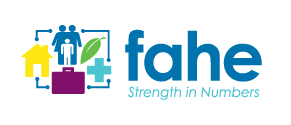A program in eastern Kentucky provides low-income residents in rural areas with recovery services and supports
Accessing treatment and maintaining progress in recovery from opioid use disorder (OUD) can be difficult for those with limited means living in isolated rural areas. The largely rural Appalachian region has suffered disproportionately from the opioid crisis, with opioid-related morbidity and mortality well above national rates. Started in 2019 by the anti-poverty agency Federation Appalachian Housing (FAHE), Kentucky Access to Recovery (KATR) provides services to low-income residents in early recovery from OUD in 37 Appalachian counties to help them meet basic needs essential to maintaining recovery. Clients are primarily those who are in or have completed addiction treatment and now face barriers to successful reintegration into the community. Services are informed by the social determinants of health (SDOH) and include assistance in finding housing, employment, childcare, medical care, clothing, and transportation. KATR has developed a network of service providers to which clients can be quickly referred to meet specific needs as identified in individualized recovery plans. Clients receive vouchers to pay for services, clothing, and other essentials.
KATR has been featured in news reports and recent evaluations (here and here) suggest that it is effective in mitigating economic and social barriers to maintaining recovery from OUD. As such it can serve as a model for rural communities seeking to support those most in need of assistance in rebuilding their lives after addiction.
A similar program has been implemented in Massachusetts. The Brandeis Opioid Resource Connector has published an issue brief on the importance of SDOH in addressing the opioid crisis.
Providing essential social services and economic assistance to individuals in early recovery from opioid addiction is key to maintaining their recovery and reintegration into the community.









